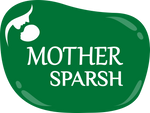
Newborn Care Guide: Feeding, Sleep & Baby Tips for New Parents
Becoming a Parent: The Early Weeks
Bringing home your newborn is magical—but also overwhelming. Your little one depends on you for everything, from feeding to skincare. That’s why we’ve put together this newborn care guide, covering the essentials: feeding, sleep, crying solutions, bathing, burping, and delicate skin care.
Whether you’re a first-time parent or already have kids, these practical tips will help you feel more confident in those early days.
- How Often Should a Newborn Feed?
- Signs Baby Is Getting Enough Milk
- Why Newborns Cry (and How to Calm Them)
- Newborn Sleep Patterns & Safety
- Sneezing & Hiccups: Normal or Not?
- When Can Babies Have Water?
- How to Burp a Newborn
- Bathing Your Baby—How Often?
- Peeling Skin & Rashes: What’s Normal?
- Simple Daily Routine Tips

How Often Should a Newborn Feed?
Newborns usually feed 8–12 times in 24 hours—about every 2–3 hours. Breast milk digests quickly, so frequent feeds are normal. Formula-fed babies may go slightly longer between feeds.
👉 Many parents notice “cluster feeding” in the evenings, when babies want to nurse every hour. It’s normal and helps boost milk supply.
Quick Tip: Watch for hunger cues—rooting, sucking hands, or fussiness—rather than the clock.
Signs Baby Is Getting Enough Milk
It’s natural to worry if your newborn is eating enough. Look for these signs:
-
Nursing at least 8–10 times a day
-
Appearing active and alert during feeds
-
Relaxed and satisfied after feeding
-
6+ wet diapers per day (by the end of week one)
-
Steady weight gain after the first few days
💡 Pro Parent Tip: Keep a simple feeding/diaper log or use a baby-tracking app to share with your pediatrician.
Why Newborns Cry (and How to Calm Them)
Crying is your baby’s way of communicating. Common reasons include:
-
Hunger
-
Dirty diaper
-
Sleepiness
-
Gas or discomfort
-
Overstimulation
👉 Story many parents can relate to: babies often have a “witching hour” in the evening with extra fussiness. It usually improves by 6–8 weeks.

Ways to Soothe a Crying Baby:
-
Swaddle in a soft blanket
-
Hold close with skin-to-skin contact
-
Rock gently or use a swing
-
Feed before crying escalates
-
Try white noise or lullabies
-
For tummy discomfort or colic, gently massage the belly or use a natural remedy like Mother Sparsh Tummy Roll On, which is formulated with Ayurvedic oils to ease gas and colic pain.
⚠️ If crying lasts for hours and baby seems in pain, consult your pediatrician.
Newborn Sleep Patterns & Safety
Newborns sleep 14–17 hours daily, in short stretches of 2–4 hours. Night wakings are normal since their body clocks aren’t developed yet.
Safe Sleep Checklist:
-
Always place baby on their back
-
Use a firm crib mattress with a fitted sheet
-
No pillows, blankets, or stuffed toys
-
Share your room (not your bed) for the first 6 months
💤 Tip for Parents: Nap when your baby naps—it really helps with exhaustion.
Sneezing & Hiccups: Normal or Not?
-
Sneezing: Clears nostrils. Normal unless paired with fever or breathing trouble.
-
Hiccups: Caused by an immature diaphragm. Common after feeds and harmless.
👉 Call your doctor if sneezing is constant with congestion, or baby struggles to feed.
When Can Babies Have Water?
Newborns don’t need water. Breast milk or formula provides all hydration. Giving water too early can upset electrolyte balance.
-
Offer water only around 6 months, when solids begin.
-
Until one year, milk should remain the main nutrition source.

How to Burp a Newborn
Babies often swallow air while feeding. Burping helps prevent discomfort.
3 Simple Burping Positions:
-
Over the shoulder – baby upright, pat gently
-
Sitting on lap – support chest/head, pat back
-
Across lap – baby tummy-down, support head higher than chest
⚠️ Always support the neck and keep movements gentle.
Bathing Your Baby—How Often?
You don’t need to bathe your newborn daily. 2–3 times a week is enough to keep them clean without drying out their delicate skin.
Bathing Tips:
-
Use lukewarm water
-
Choose mild, fragrance-free cleansers (try gentle baby soap or a mild baby wash made with natural care baby products)
Wipe face, neck, and diaper area daily with a soft cloth -
Never leave baby unattended in water
🌿 Parent Tip: Opting for natural baby care products keeps bath time gentle, safe, and nourishing newborn skin.
Peeling Skin & Rashes: What’s Normal?
-
Peeling skin: Common in the first weeks. Moisturize with baby lotion for comfort.
-
Rashes: Heat rash, baby acne, or tiny red spots are usually harmless.
⚠️ Contact your pediatrician if rashes spread quickly, baby has a fever, or seems uncomfortable.
💡 Skincare Tip: Use soft fabrics and mild detergents. Water-based wipes are gentle for daily clean-ups.
Simple Daily Routine Tips for Parents
Here’s a quick newborn care checklist:
-
Feed on demand, watch cues
-
Track wet/dirty diapers
-
Soothe crying early with swaddling, rocking, or feeding
-
Practice safe sleep habits
-
Burp gently after feeds
-
Bathe 2–3 times weekly
-
Moisturize and protect skin daily
Final Thoughts
The newborn stage is a whirlwind—full of sleepless nights, diaper changes, and tender moments. With these newborn care basics, you’ll feel more prepared and supported.
🌿 Explore our gentle newborn skincare range, specially designed for delicate baby skin: Baby Lotion, Water Based Baby Wipes, Mild Baby Soap.
You’re doing amazing, parent. 💛




